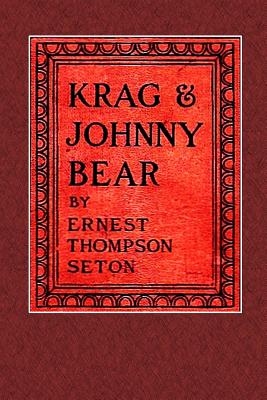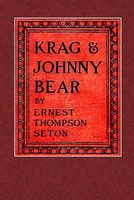- Welcome to FictionDB, Guest
- | My Account
- | Help

Krag and Johnny Bear — Ernest Thompson Seton
Mr. Seton, though not a pioneer in animal stories-we have to go back to Aesop for that-has yet made the field emphatically his own. No one, we think, has so well described the life and interpreted the feelings of our little brothers clothed in fur or feathers as has he. The secret is his wonderful sympathy with the subjects of his study. Not even St. Francis, who preached to his brothers of the air and field, or Cowper, with his tame hares, more fully entered into their feelings. In the animals he finds the virtues most admired in man, as constancy, fidelity, mother-love, love of liberty, and the like. There is only one way he says to make an animal's history untragic. and that is to stop before the last chapter. Almost all die deaths of violence. In this we must not arraign the wisdom of the Creator. Better this than to die of starvation or cold. And have not the animals as good a right to prey upon one another as we have to prey upon the sheep, the ox, and deer? One thing at least the animals are not guilty of, they do not hunt for the fun of it, and destroy life In wanton sport; that is left for your modern Nimrod. This Mr. Seton unstintedly denounces. These tales have an extraordinary fascination, all the more so to us as the animals described in this and Mr. Seton's other books are mostly good Canadians. He describes our country and its environment with a wonderful fidelity. The humor of the story of "Johnny Bear," and of "The Kangaroo Rat," of "Tito," the coyote, relieves the tragic pathos of much of animal life, as that of "Krag, the Kootenay Ram."
-"Methodist Magazine and Review," Vol. 54
-"Methodist Magazine and Review," Vol. 54
Click on any of the links above to see more books like this one.

